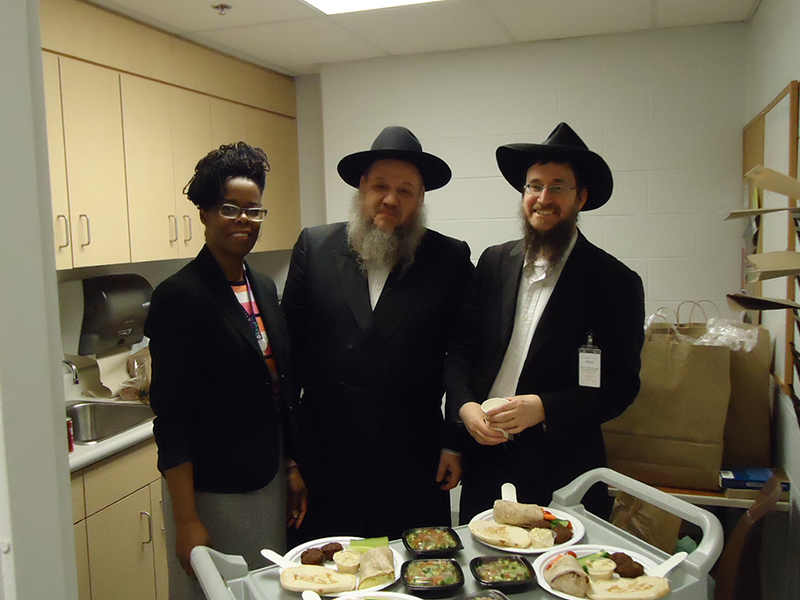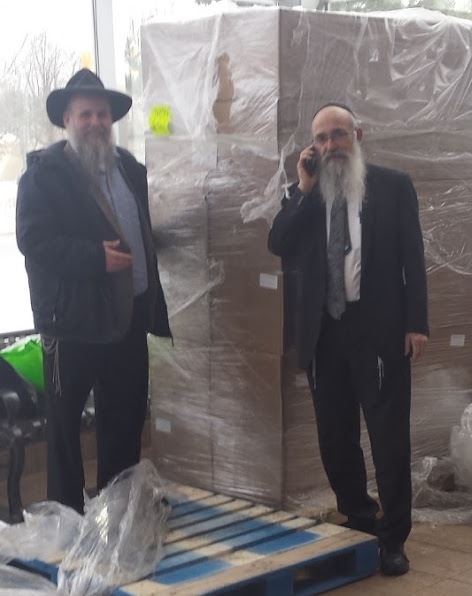Rabbi Michael Csillag visits Jewish inmates in Ontario prisons every week. For him, a Jew who’s in jail is still a Jew.
“It’s important to show the selfless love that each Jew has for one another,” Rabbi Csillag said.
In August 2016, one of his friends was sent to prison and he was determined to ensure the convict had access to Judaism, even though he said that “it was a battle.”

This was the start of Jewish Services of Canada, a volunteer-run organization that organizes Jewish programs for Canadian prisoners, mainly at the Toronto South Detention Centre and the Central East Correctional Centre in Lindsay, Ont. Rabbi Csillag, along with 10 others, officially began the initiative a year ago.
“Religion becomes paramount (in prison),” said a Jewish inmate who is currently out on bail and asked to remain anonymous. He grew up in a traditional Jewish household, but explained that regardless of an individual’s religious affiliation, being associated with a spiritual group in prison is very important to some.
“A Jew in jail is a minority of a minority. They feel very marginalized. When they get a visit from someone from their faith group once a week, it really boosts their faith,” Rabbi Csillag said.
Approximately one per cent of the population of the Toronto South Detention Centre self-identifies as Jewish. Across all provincial correctional institutions, the number is roughly 0.5 per cent, according to Brent Ross, a spokesperson for Ontario’s Ministry of Community Safety and Correctional Services. For Rabbi Csillag, the minority status of Jews in prison furthers the necessity of his work.
All Ontario prisons are supermax institutions, which means that they are all maximum-security facilities. At Toronto South, inmates’ family members can speak to their loved ones once a week via a 20-minute video call and once a month in person, if they are approved by security checks, according to the anonymous offender’s sister. Yet, Jewish Services of Canada visits prisoners, in person, every week and is permitted to enter the living area of the prisons, which family members are not allowed to do.
“It’s a touch of humanity.… Rabbi Csillag would call me just to put me at ease,” said he offender’s sister. “The family suffers, as well, in a different way.”

Rabbi Csillag often helps inmates’ families, too. In one instance, the breadwinner of a family was imprisoned, leaving his wife and children without an income. In response, Jewish Services of Canada raised funds to help pay their rent and send their children to summer camp.
“They have pioneered two programs. One was they actually brought a sukkah into the provincial jail system and they also pioneered a project on Hanukkah … and they gathered all of the Jewish inmates, which I don’t think has ever been done before,” the offender said.
Participating in these Jewish programs was the only time he’d see anyone, other than the inmates in his living unit. And since Jews are such a minority in the prison, he rarely, if ever, saw another Jewish person.
 For Purim, Jewish Services of Canada extended its reach to federal facilities, holding 27 megillah readings. On Passover, it hosted a kosher seder at Toronto South and sent out 200 boxes of shemurah matzah to all federal and provincial prisons in Ontario.
For Purim, Jewish Services of Canada extended its reach to federal facilities, holding 27 megillah readings. On Passover, it hosted a kosher seder at Toronto South and sent out 200 boxes of shemurah matzah to all federal and provincial prisons in Ontario.
“Prison is a very depressing place, so when (inmates) are able to celebrate, it’s a huge thing that really lifts their spirits,” Rabbi Csillag said.
He hopes to eventually expand nationwide and get involved with female prisons, as well.
